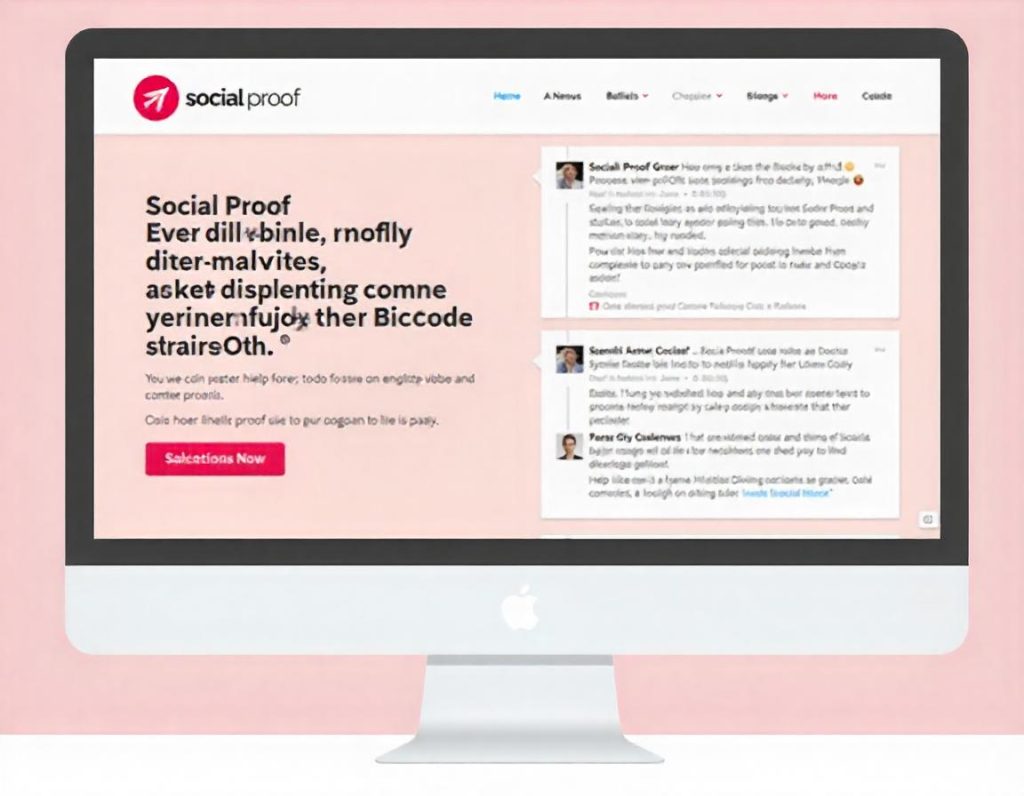Social proof marketing is the strategy of using the influence of others to encourage potential customers to make a purchase or engage with your brand. It relies on the psychological phenomenon where people look to the actions and behaviors of others to guide their own decisions.
Types of Social Proof
1. Customer Reviews and Testimonials
One of the most common forms of social proof, reviews and testimonials highlight the experiences of existing customers. Positive feedback on websites, social media, and third-party platforms can influence potential customers’ purchasing decisions.
Unlock Your Writing Potential and Start Earning Today with our read online E-book
2. User-Generated Content (UGC)
UGC refers to content created by customers or users, such as photos, videos, and posts showcasing your products or services. Sharing this content not only serves as social proof but also helps build brand community and trust.
3. Influencer Endorsements
Partnering with influencers who have a large, engaged following can significantly impact brand credibility. Their endorsements serve as a powerful form of social proof, especially in industries like fashion, beauty, and fitness.
4. Case Studies and Success Stories
Detailed success stories that demonstrate how your product or service solved a problem for a customer can provide strong social proof. Case studies build trust by showing real-world results and showcasing the value of your offering.
5. Social Media Mentions and Engagement
When customers mention your brand or engage with your content on social media, it acts as a form of social proof. High engagement rates, shares, and mentions create a sense of credibility and encourage new customers to interact with your brand.
6. Trust Badges and Certifications
Displaying trust badges, security certificates, or industry-related awards on your website can increase confidence among potential customers. They serve as proof that your business is legitimate and trustworthy.
7. Social Following Count
The number of followers you have on platforms like Instagram, Twitter, or Facebook can serve as social proof. A large and engaged audience signals that your brand is popular, which can attract others to follow suit.
8. Number of Purchases or Users
Highlighting the number of products sold or users who have benefited from your service can provide social proof. For example, “Over 10,000 happy customers” or “Bestselling product” serves as proof of your brand’s popularity.
How to Leverage Social Proof in Marketing
1. Display Reviews and Testimonials Prominently
Showcase customer reviews and testimonials on your website’s landing pages, product pages, and checkout process to increase conversions. Positive feedback on popular review sites like Trustpilot or Google Reviews can also influence new customers.
2. Use Influencer Marketing
Identify influencers who align with your brand values and target audience. Their endorsements can add authority to your brand, especially in niche markets.
3. Encourage User-Generated Content
Create campaigns or incentives to encourage customers to share their experiences with your product, such as hosting a photo contest or offering discounts for social media posts.
4. Highlight Media Mentions and Press Coverage
If your brand has been featured in the media or has won any awards, make sure to display these accolades prominently on your website and social channels. Media coverage serves as social proof of credibility.
5. Implement a Social Sharing Feature
Allow customers to easily share their purchases or experiences on social media. When customers share their purchases, it amplifies your brand’s presence and provides real-time social proof.
6. Display Real-Time Activity
Real-time notifications such as “10 people bought this product in the last hour” or “This product is being viewed by 50 people right now” can create a sense of urgency and social proof, encouraging others to act.
7. Create Case Studies and Success Stories
Develop detailed case studies showcasing how your product or service delivered measurable results for customers. Highlight specific challenges, solutions, and outcomes to build trust with potential clients.
8. Use Trust Badges and Secure Payment Symbols
Displaying security badges, payment system certifications (like SSL certificates), and membership seals (such as Better Business Bureau or industry associations) can reassure potential customers about the safety and legitimacy of your business.
Benefits of Social Proof Marketing
- Increases Trust: Social proof creates an aura of trustworthiness, especially for new customers who may be hesitant to engage with an unknown brand.
- Boosts Conversion Rates: Seeing others’ positive experiences or purchases can persuade potential customers to follow suit, leading to higher conversion rates.
- Encourages Customer Loyalty: When customers see that their peers value your brand, it fosters a sense of community and loyalty.
- Reduces Purchase Anxiety: Potential buyers feel more confident when they see others have had a positive experience with your brand.
Tools for Implementing Social Proof Marketing
1. Review Management Platforms
Tools like Yotpo, Trustpilot, and Feefo help manage and display customer reviews across multiple platforms.
Start Your Digital Business Today for Just 20 USD
2. UGC Platforms
Tools like Olapic and TINT can help aggregate user-generated content and display it on websites and social media.
3. Social Media Listening Tools
Platforms like Sprout Social or Hootsuite track mentions, hashtags, and engagement related to your brand, helping you measure and leverage social proof.
4. Email Marketing Tools
Use email marketing platforms like Mailchimp or Klaviyo to send personalized emails with customer reviews, testimonials, and social proof highlights.
5. Social Proof Widgets
Services like Proof and Fomo offer widgets that display real-time social proof, such as recent purchases or website activity, to encourage conversions.
